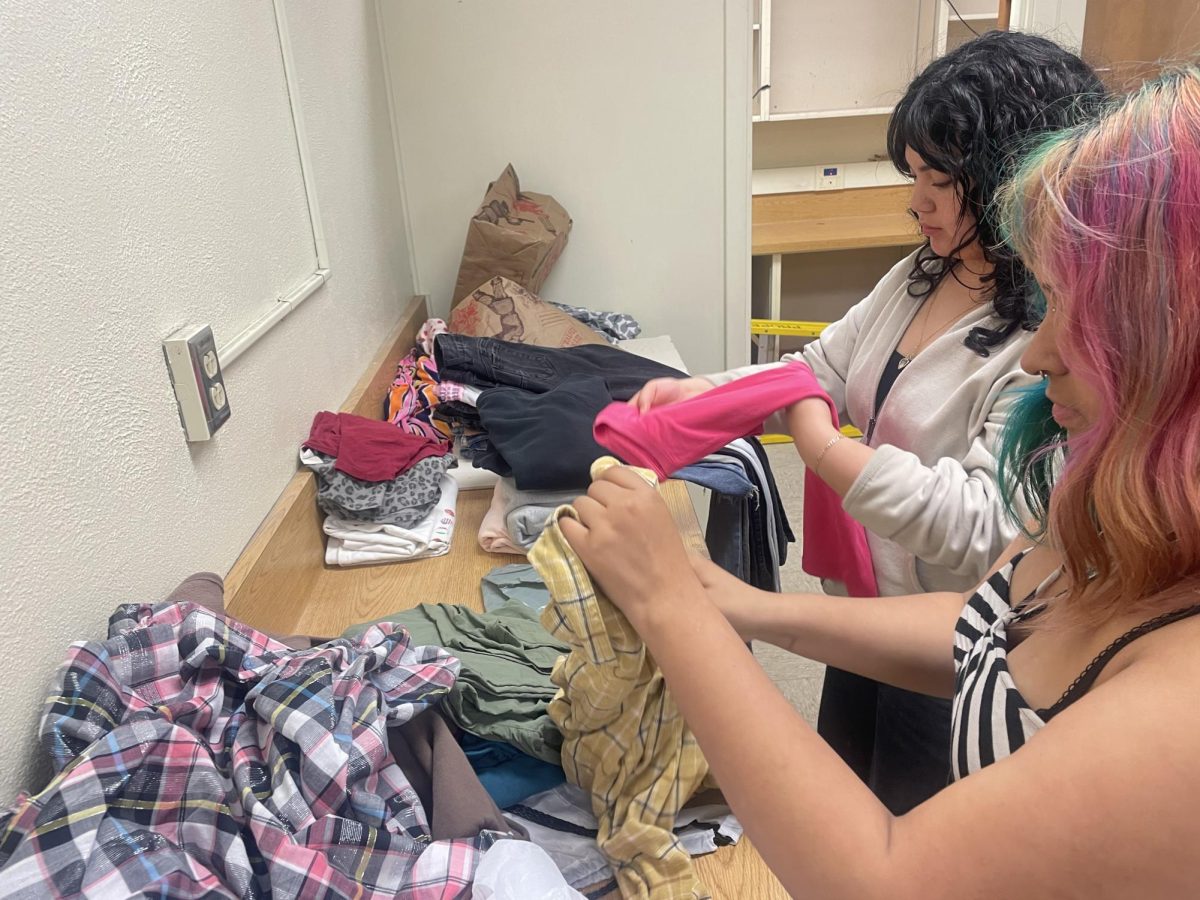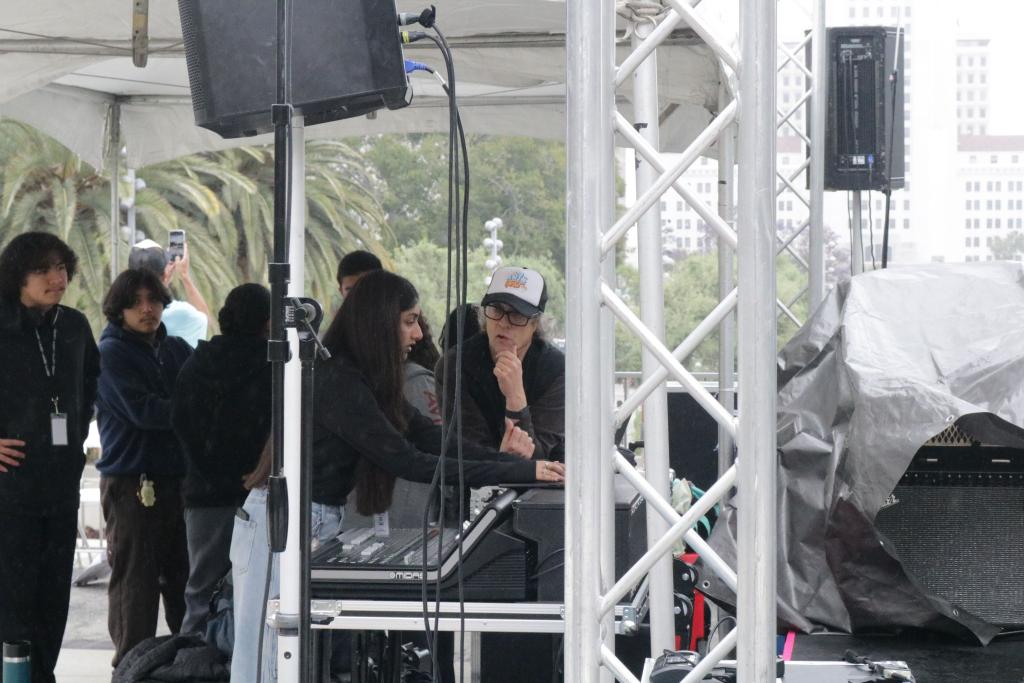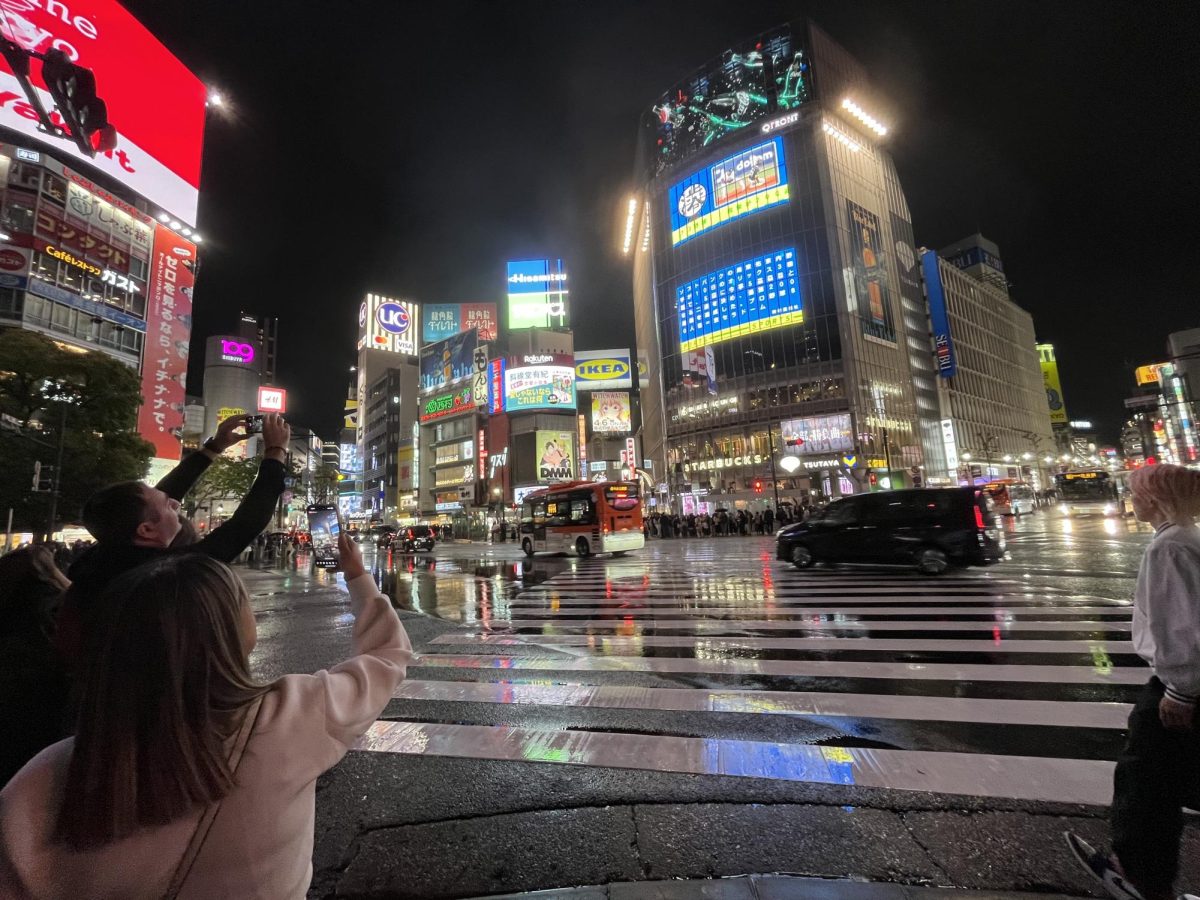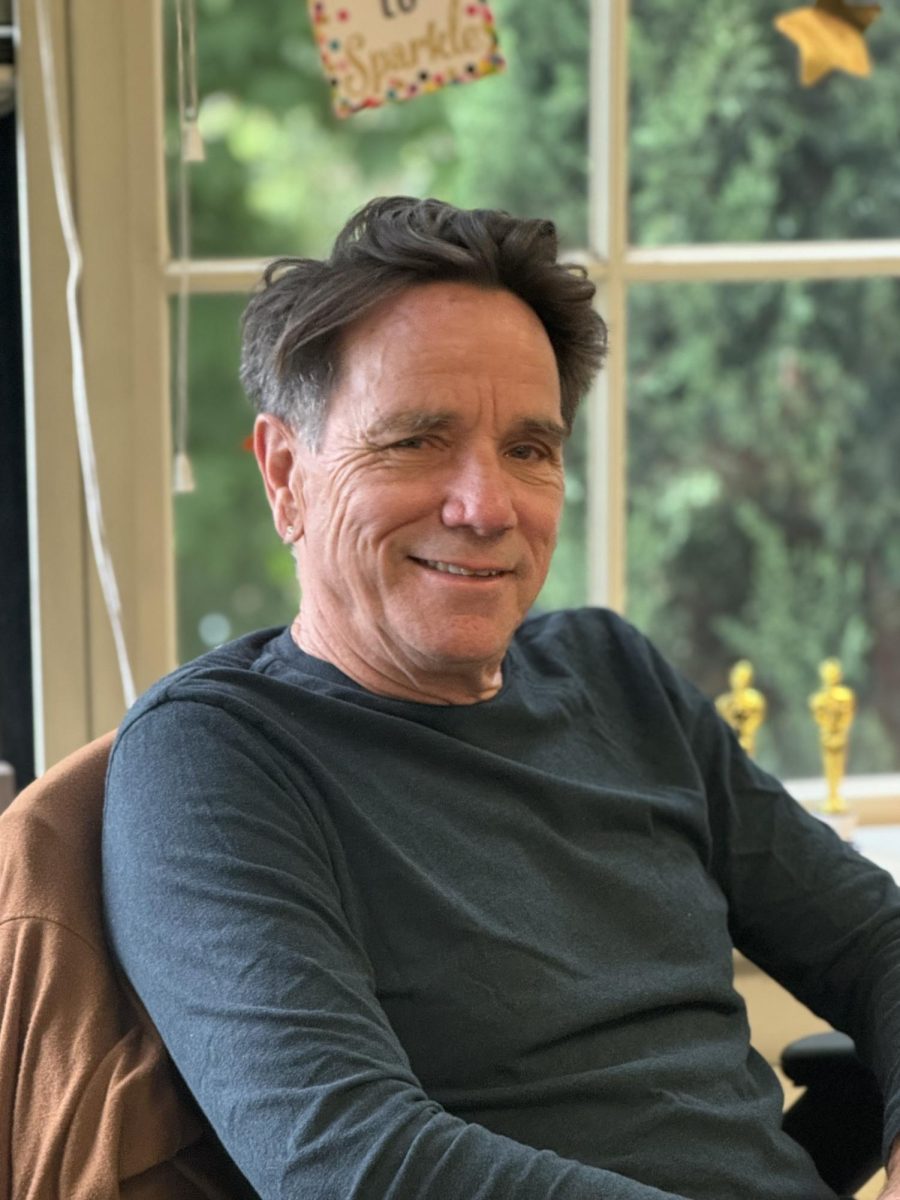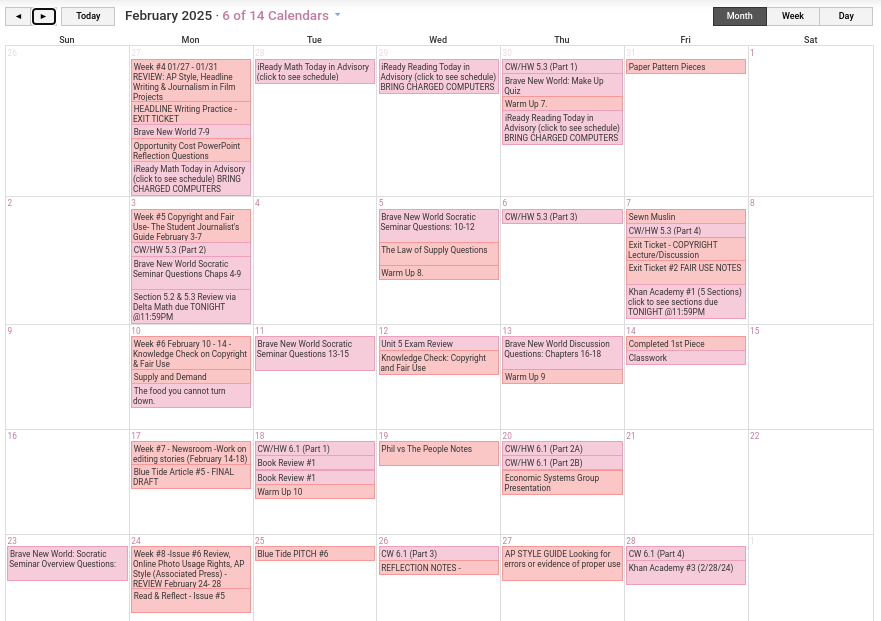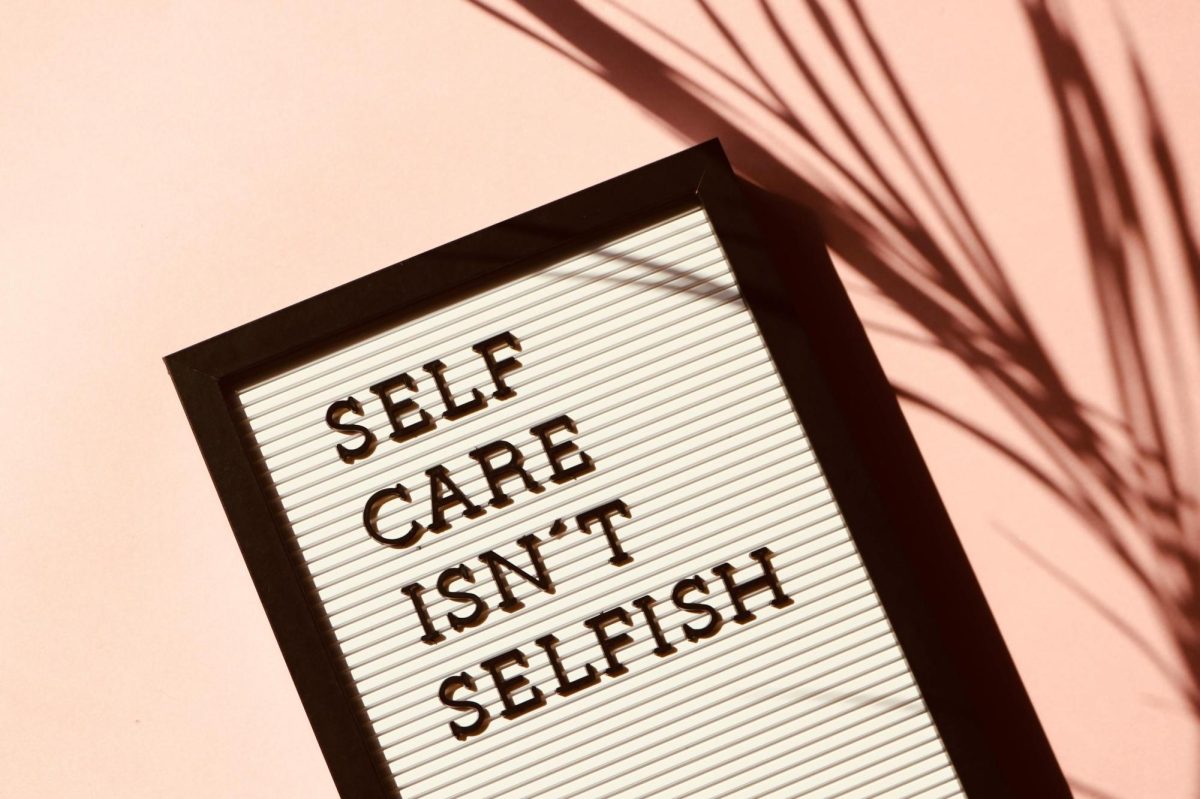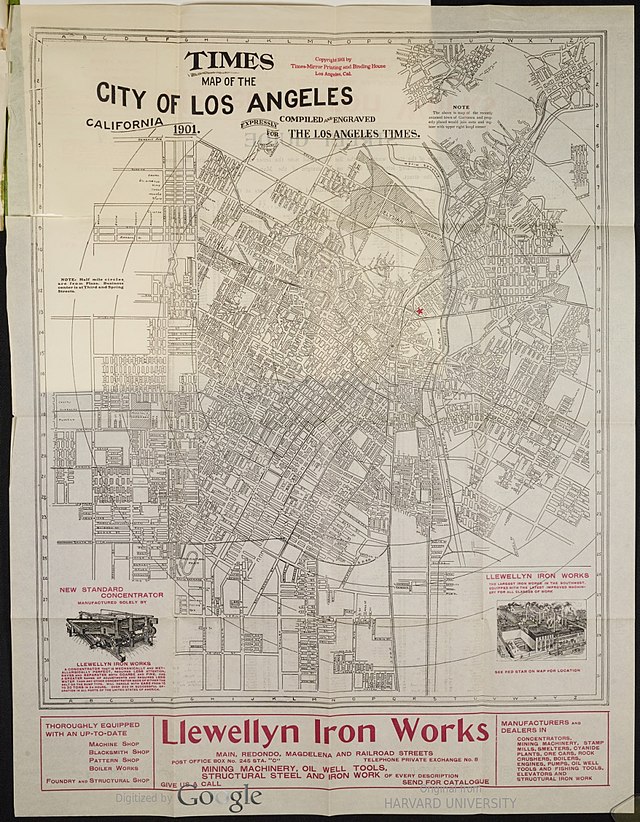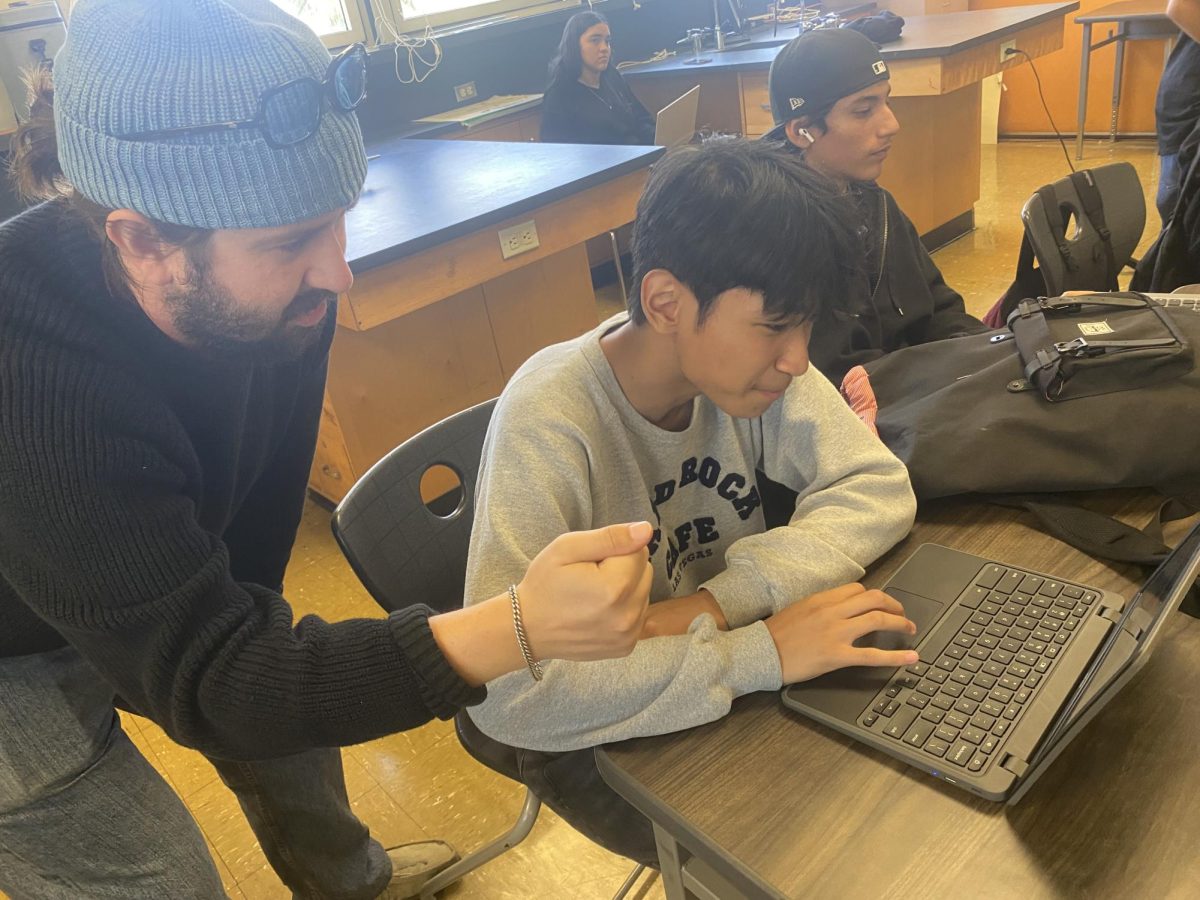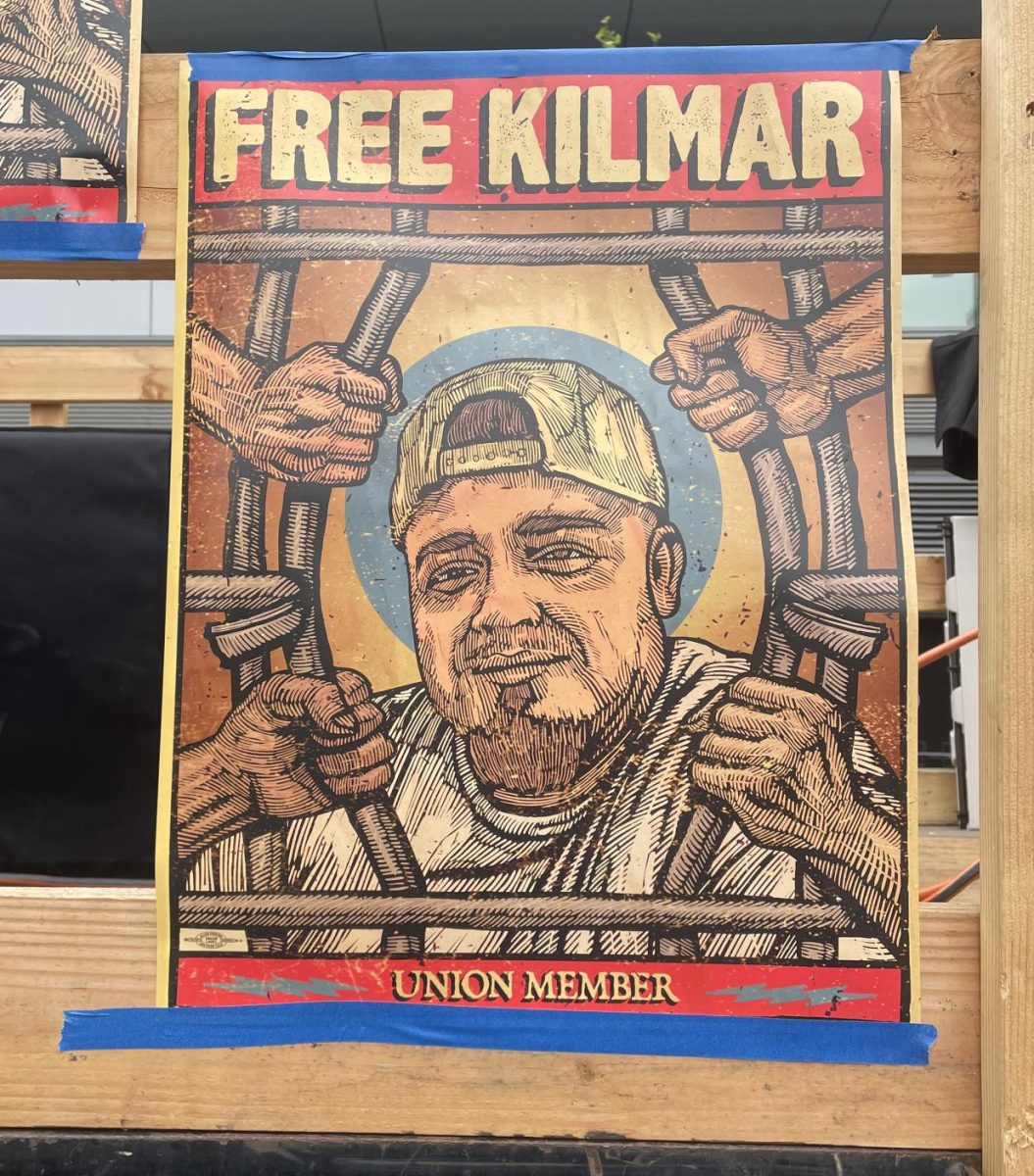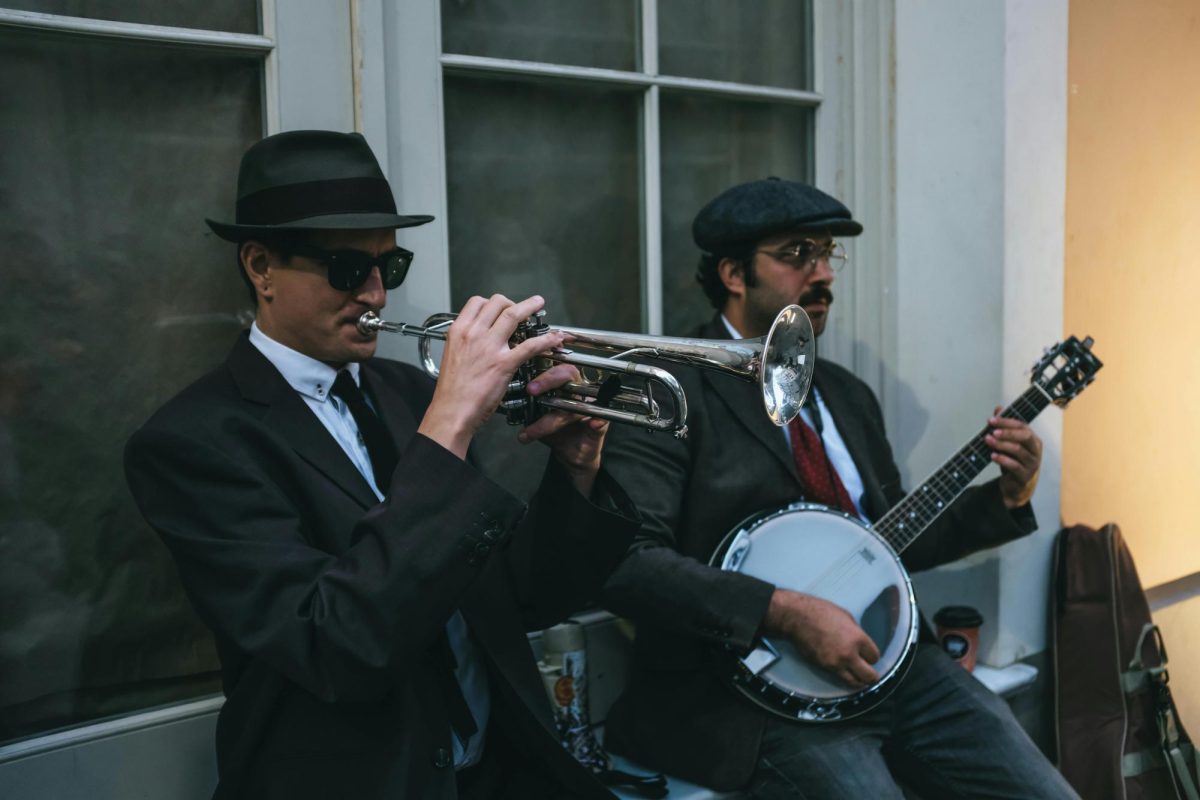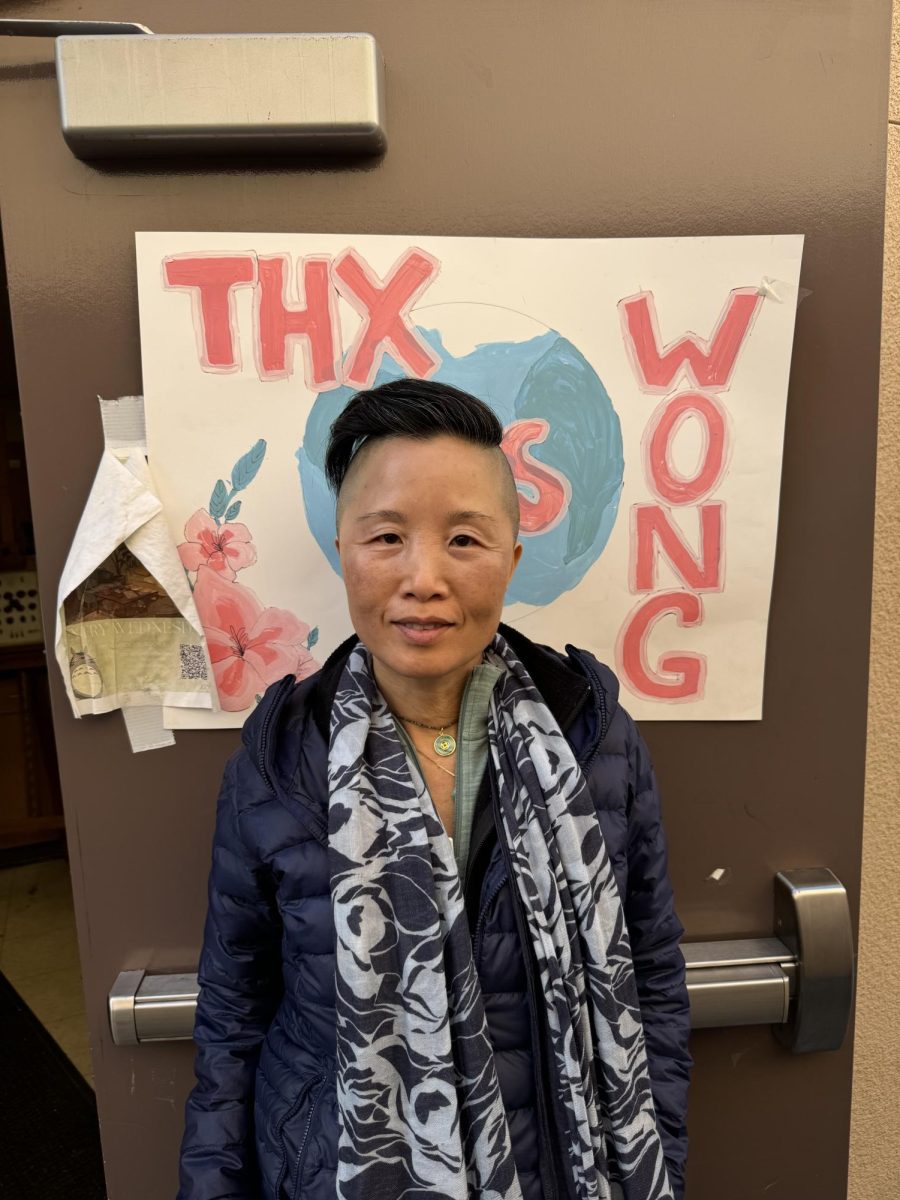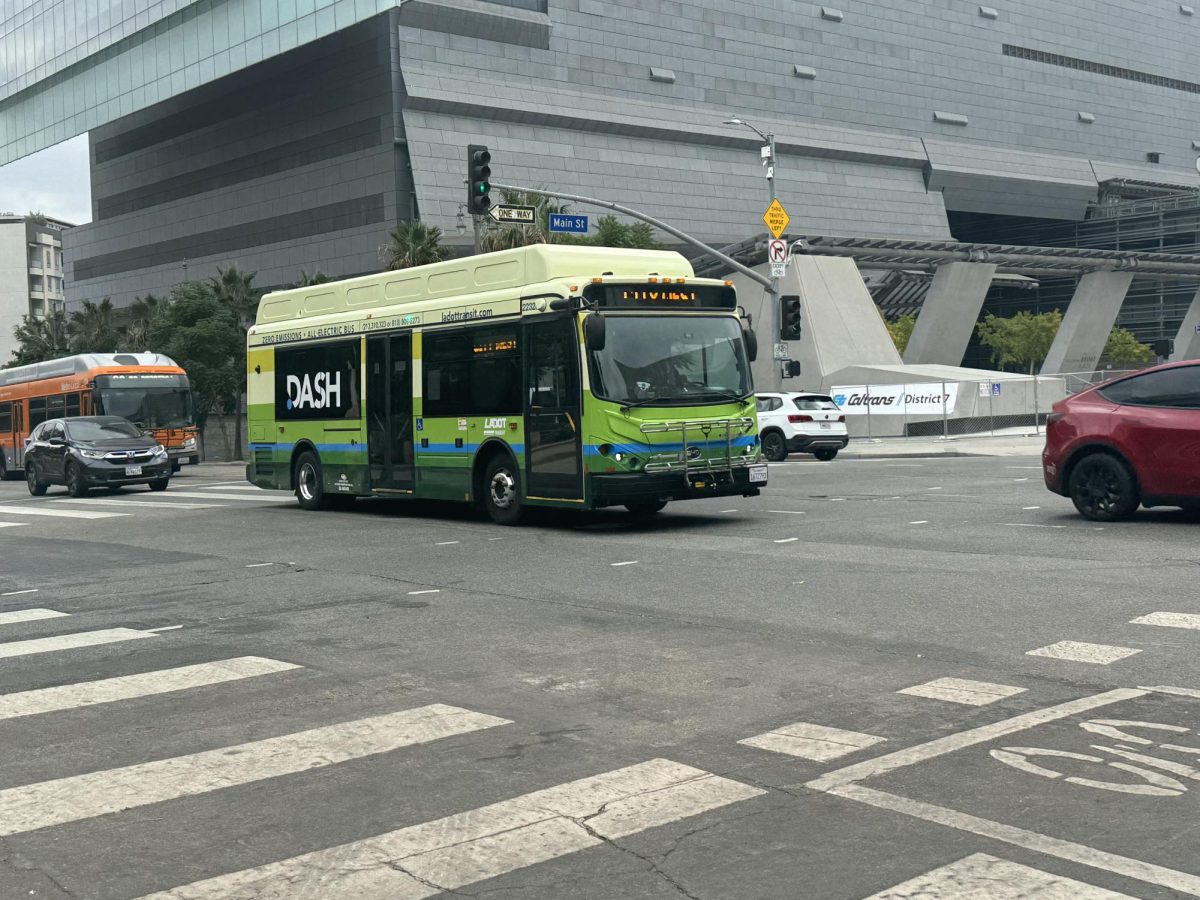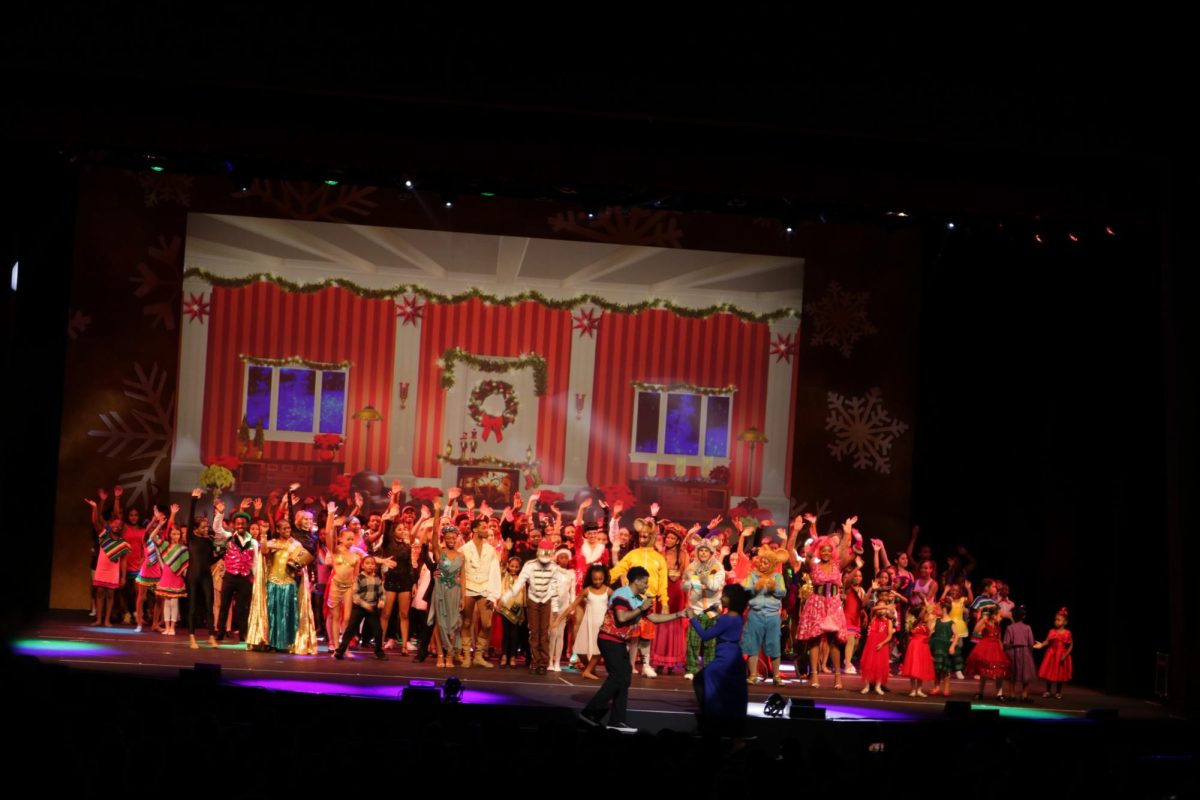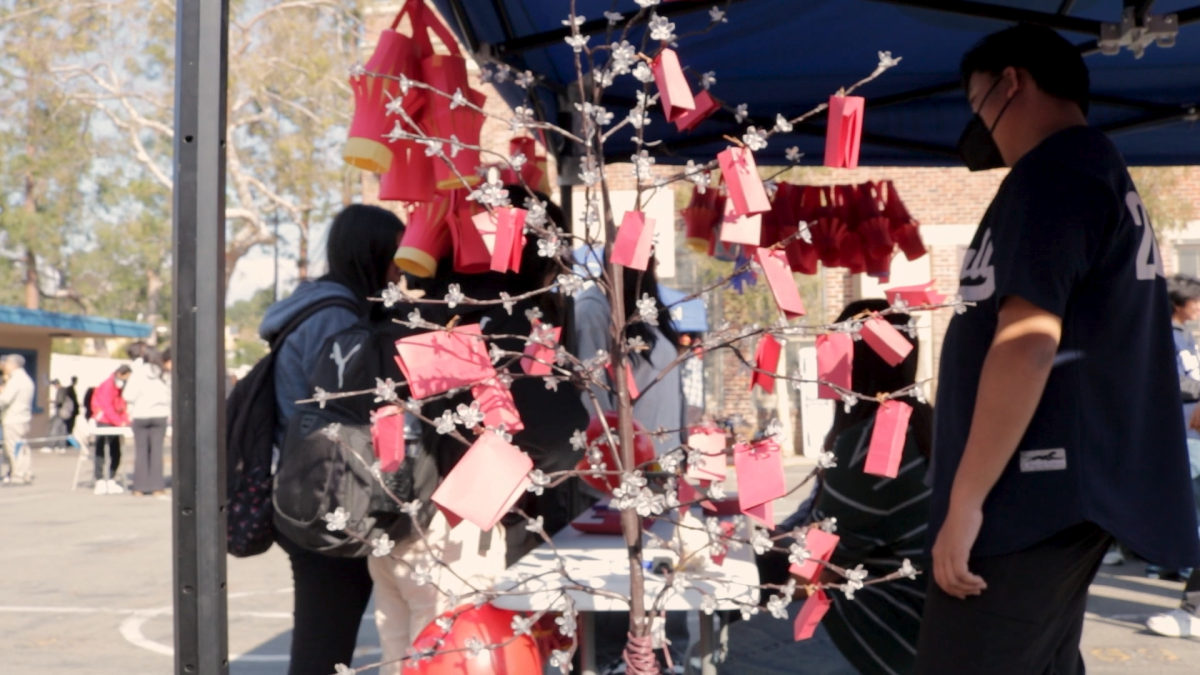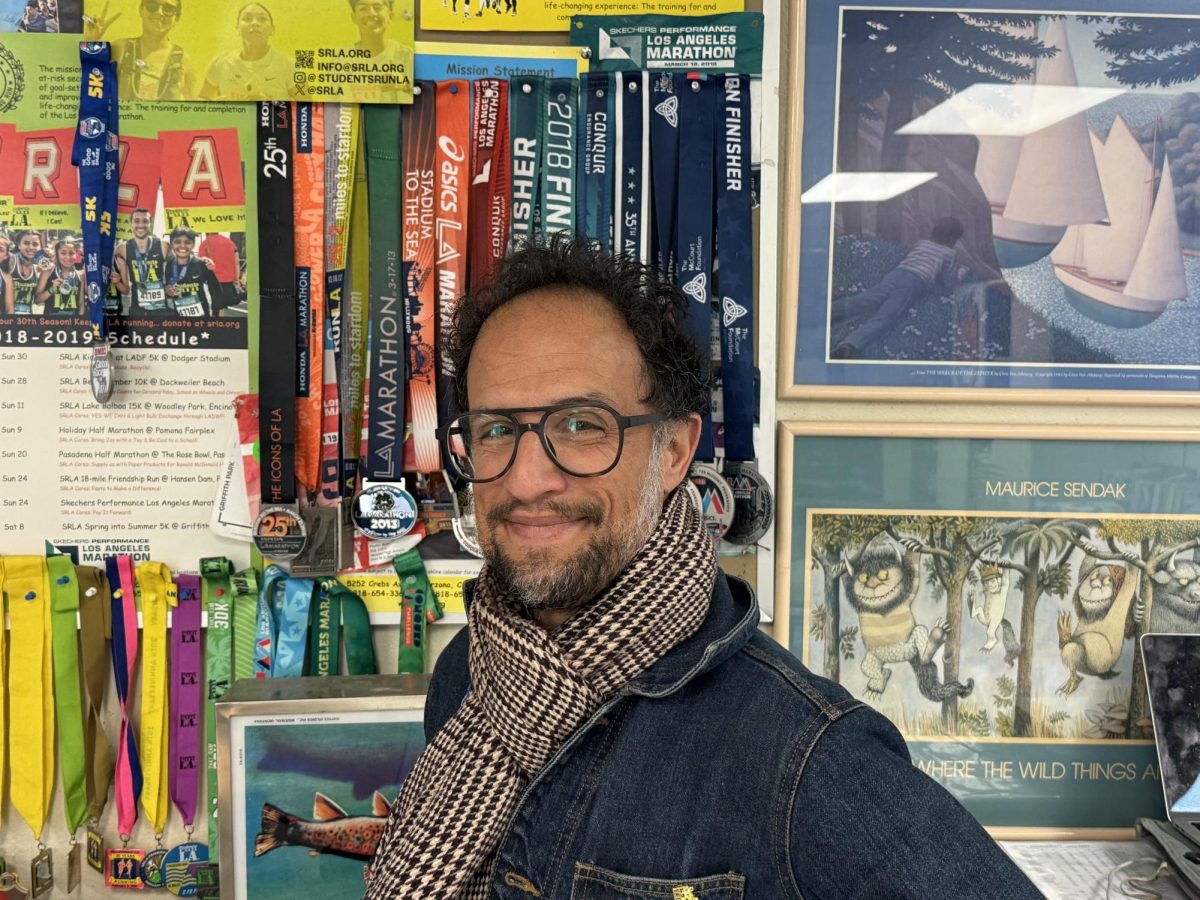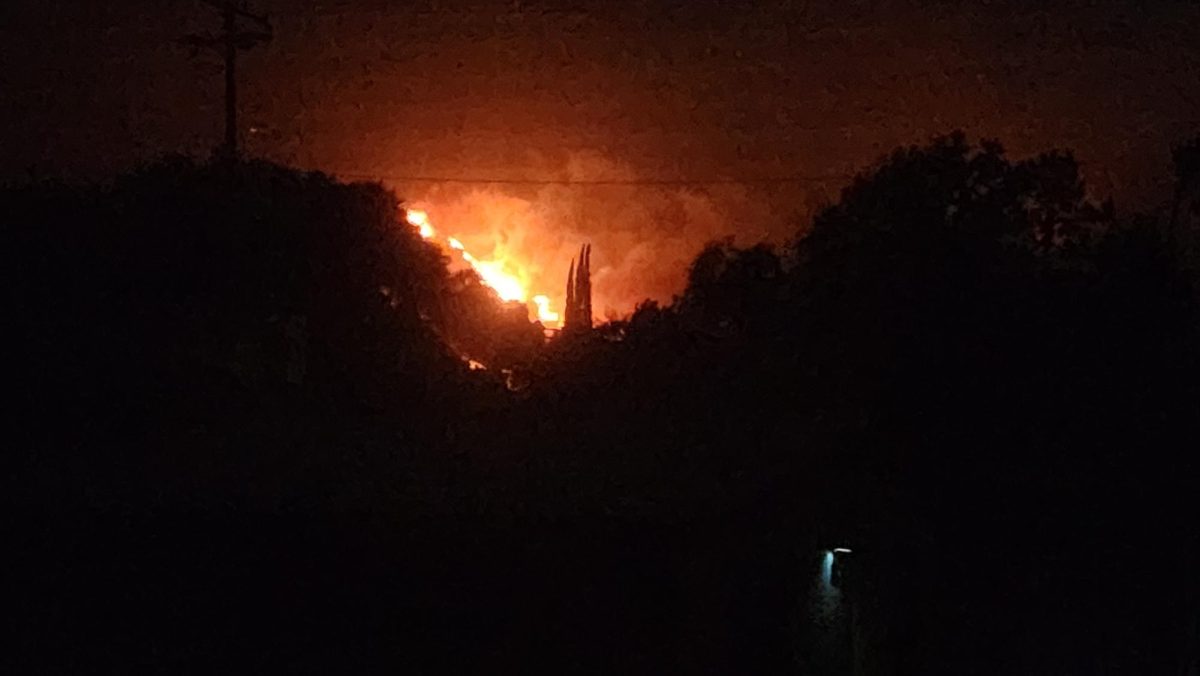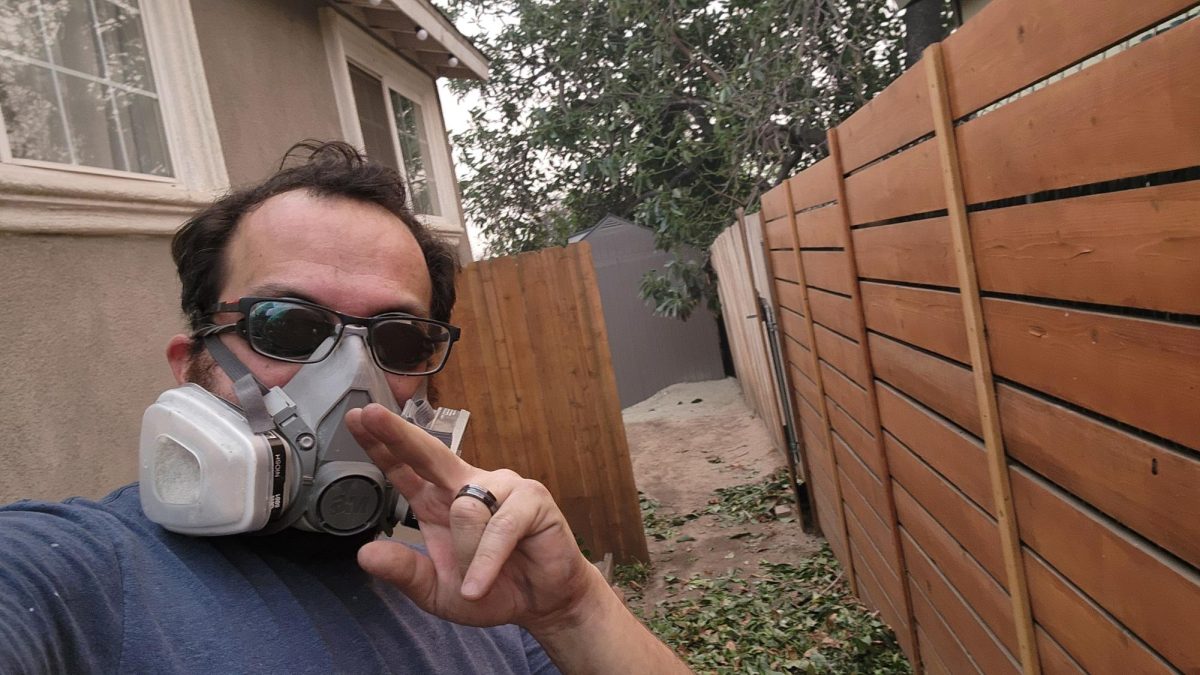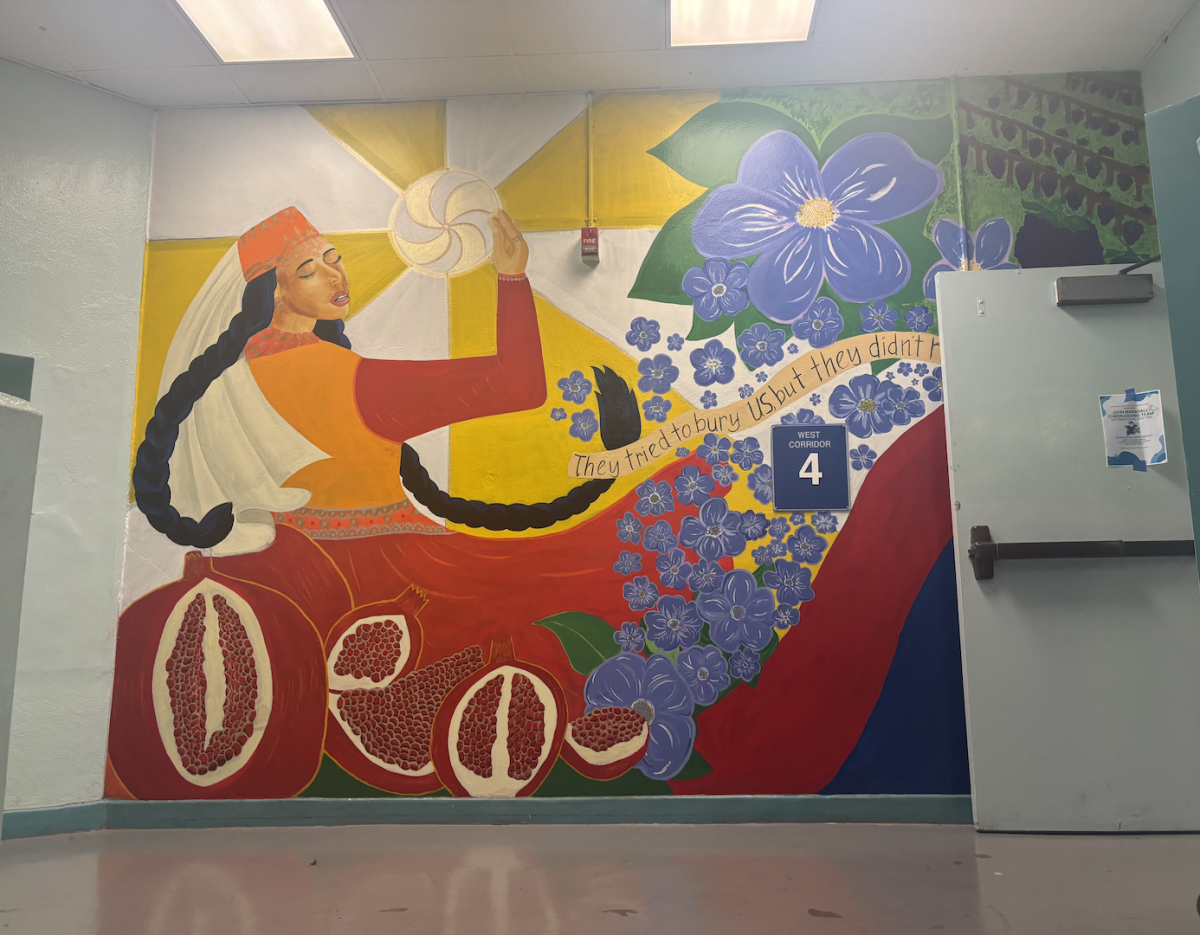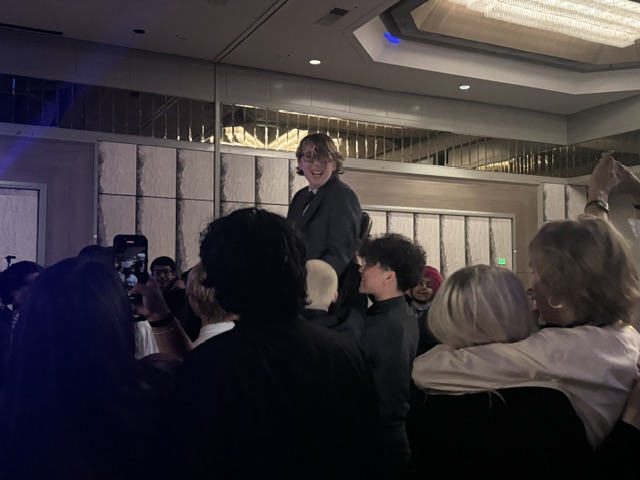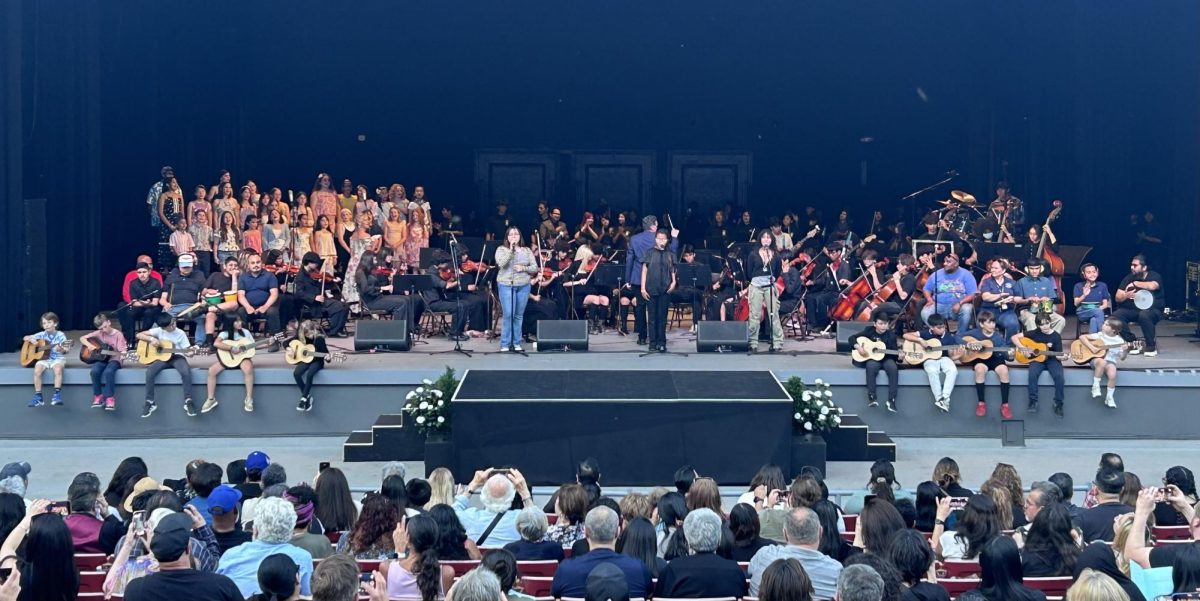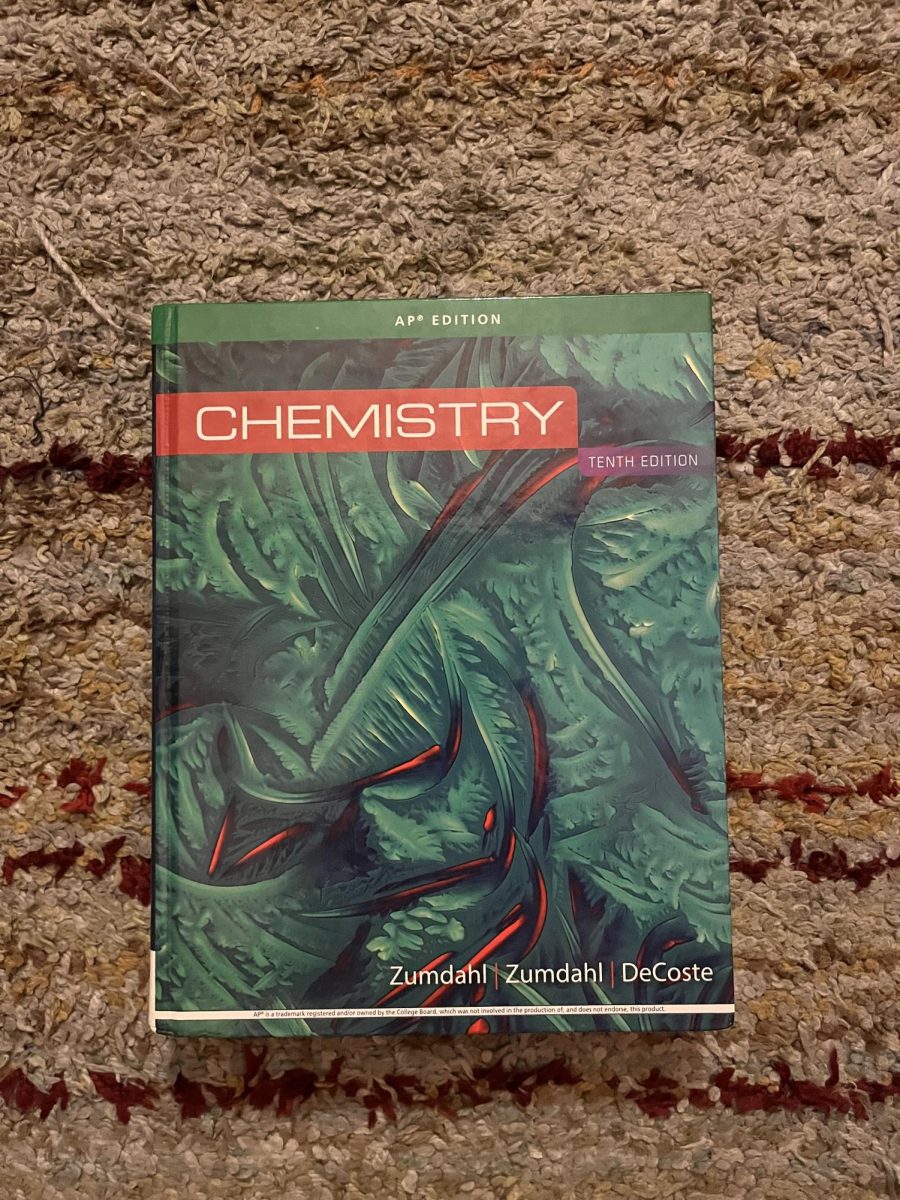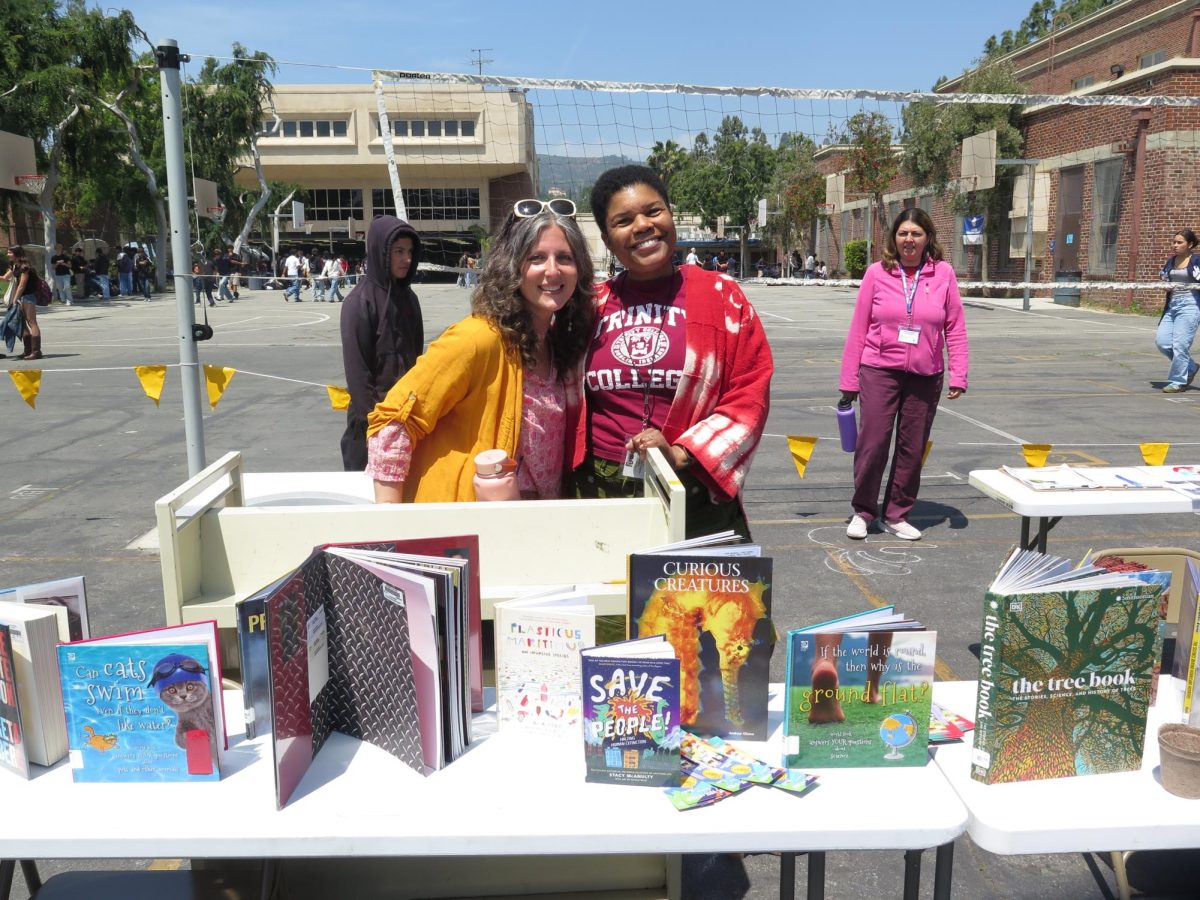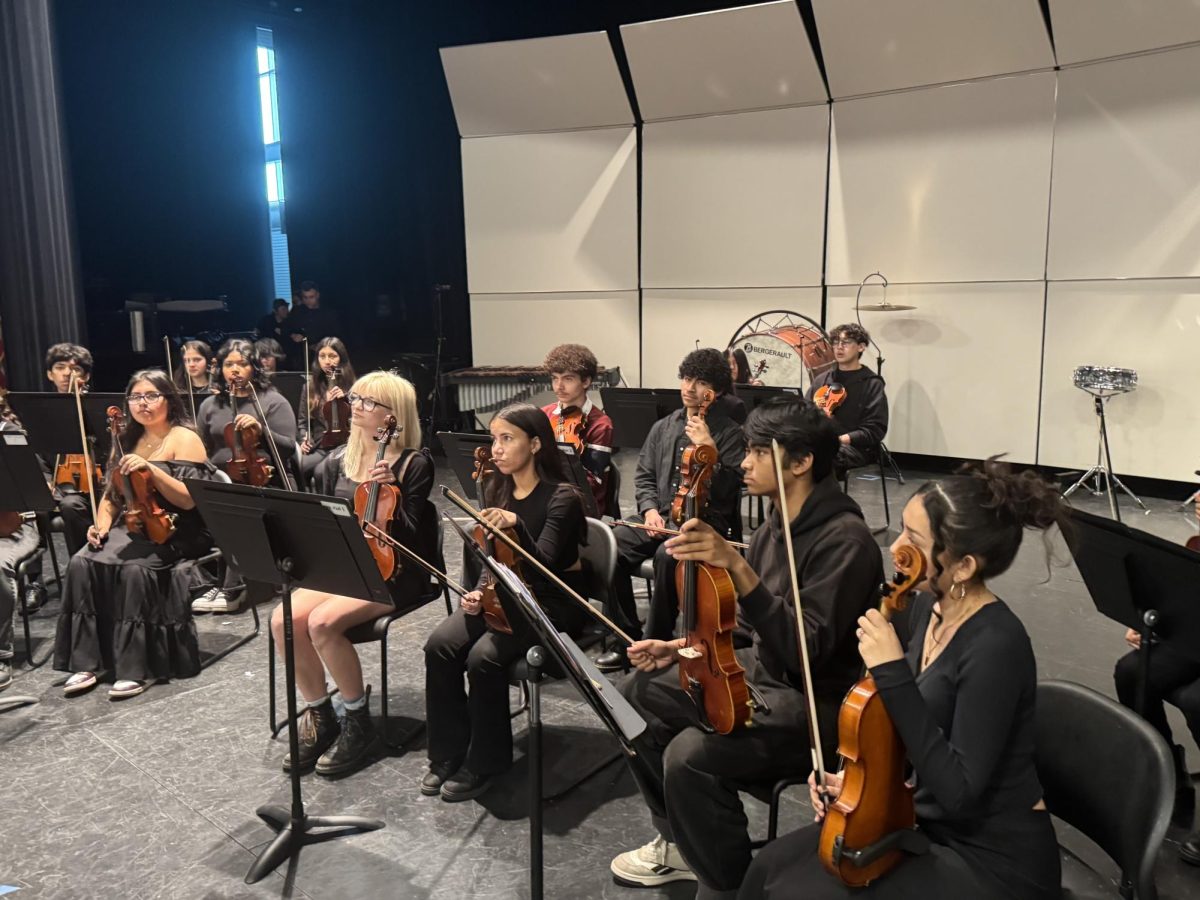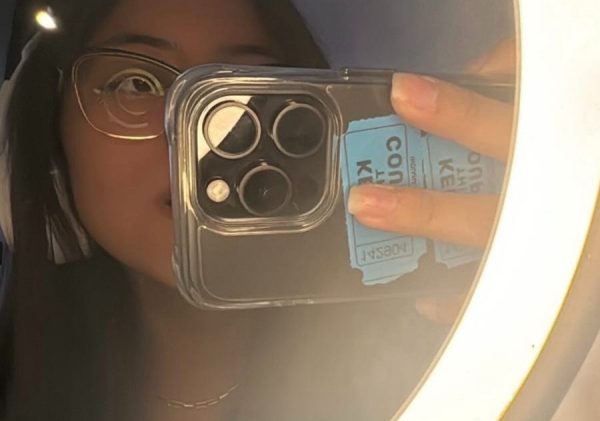On January 7, 2025, a catastrophic wildfire broke out in the Santa Monica Mountains of Los Angeles County, later wiping out 14,021 acres of land. To this, 200,000 individuals were under evacuation orders as the Palisades, Hurst, and Lidia fires developed, displacing over 100,000 people. Around 14 percent of homes within the Palisades and Eaton area were damaged and 86 percent of homes were obliterated. The fires caused substantial damage and destruction, estimating 10,000 structures were either damaged or destroyed. At least 11 individuals were reported dead as a result of the fires. As the fires progressed, so did the fear of staying home near those areas.
Marshall teachers (and husband & wife) Mr. Daniel Infante and Ms. Janell Neherenberg shared their challenges of protecting their home and community during the devastating Eaton fires and the emotional impacts of the disaster, the resilience and community support they obtained through their experience.
*Editor’s Note: Responses in this interview were edited for length and clarity. .
Q: Can you tell me a little about moving to Altadena? How long have you been living here and what do you like the most about Altadena?
Infante: I grew up in Pasadena, so I was born and raised there and when I bought a house it was half a mile, it was my neighborhood, and it had a lot of Black and Hispanic communities. It consisted of a working class, with a lot of older families who have been living there for countless generations. It’s not a small town but it has a small-town feel, where a lot of people walk their dogs all the time, and it was a good area to grow up in. Everything in Altadena was close, from the supermarket, hiking, getting to the freeway…there was never any traffic and there weren’t any giant buildings that covered up nature or the views.
Q: What were some of the steps in which you took to preserve your home?
Infante: First, we kept spraying water everywhere so everything would be wet, and we also covered the vents that went to our attic. It was still very windy so we tried to keep the dry leaves in check so they didn’t build up and I climbed up on the roof spraying water on it. I ran up and down the street trying to protect others’ homes the day of the fire, grabbing water hoses, etc..
Q: What instructions did your city give you during the evacuations?
Infante: We were told to evacuate but beyond that we stayed in the evacuation zone and from there firefighters told us to keep everything wet and cover up our vents.
Q: What resources or support did you receive while trying to protect your9 home?
Infante: People weren’t inside the evacuation area but we were allowed to do exchanges at the corner of Glenrose and Woodbury, there was no gas or electricity, but my family would bring me batteries to charge my phone, and they brought me food. My family stepped up as I stayed. Around the corner of my home, there was a temporary stand, with a grill area. Nearby, a church was handing out resources, and random people from the city would volunteer to bring pet food and other supplies.
Q: During this time, what were some of your thoughts and concerns?
Infante: The first thought I had was fear over whether or not my house was going to burn down because my wife and I sacrificed so much for the house. I was also worried about my neighbor’s house since they had evacuated, and I was worried about the wildlife in Altadena. From there many animals got left behind. But I continued to keep an eye on my neighbor’s house. It was a mental adjustment to come back to work because for almost 2 weeks I only saw the people within the community where I saw 6 – 7 faces. So then seeing a ton of more students was an adjustment. I saw the closeness of those who lost everything and everyone coming to LA from all over to give, being kind, and having someone to talk to. The same thing with the soldiers, and police officers when their superiors would tell them to not let anyone through and it was visible that they were sad. But they were doing what they were told, I got sad, but I knew they were doing as they had to.
Q: What were some of your concerns and adjustments you had to make?
Infante: My cousin was able to sneak in and called me after I went back around noon and that’s when I started to put stuff off around my house and I didn’t leave for a week and a half. I was mainly concerned for my neighborhood and everything going on there because first, it was the fires. Then there was no electricity so everything was dark, then it was so smoky, then there was no gas or water, and then there were looters, so it was one thing after another. After my aunt’s house burned down, it was an adjustment… she moved into my house with my cousin and her son…we were happy they did, but it was still an adjustment.
Q: What’s the neighborhood like now that the fires are out?
Infante: After the fires people relied on each other and everybody and their houses were gone. So the neighborhood was quieter and the Super King that was always busy, and the parking lot, was now just empty.
Q: What’s the hardest part about being back in the neighborhood?
Infante: My wife and I used to drive around just to kill time and walk around with our dogs and so it’s interesting cause when we leave in the morning we forget about everything and when we go back, it’s a reminder of the reality of the situation. Now when we go on a drive or a walk with our dogs, we go farther out instead of being able to walk in our neighborhood.
Q: What do you think the future of your neighborhood is?
Infante: It’s tricky because many people do want to rebuild but some don’t have the money or time so they are selling their properties. With fear, big developers will take over the area and drive out low-income families that have been living there forever. Then with the reconstruction of everything there are Victorian, craftsman’s homes, and historical homes that will be replaced with new plastic stuff rather than vintage materials.
Q: Were you also at home during the evacuation or did you continue to go to work?
Neherenberg: The few days after the fire I was still on evacuation and I stayed at my dad’s house. I had my dogs with me and I wasn’t able to go to work for a week and a half. Since the National Guard and the police would only allow me to drop off supplies in the morning and the afternoon. At our property, there was no power, gas, or clean water, so I stopped by the corner of my house to give him batteries to recharge his phone, water, and food, and he was giving some of those supplies to some of our neighbors who needed them as well. I ended up missing eight days of work.
Q: What were some of your fears?
Neherenberg: My biggest fear was losing our home. My husband’s cousin and family lived 3 blocks North of us and he called that Wednesday early in the morning, saying “This is serious, a police officer knocked on the door saying you need to evacuate.” He called back later on saying that a neighbor had already lost their house. My husband’s cousin updated us to tell us our house was still standing, but our neighbor’s backyard lemon tree hanging over our backyard was on fire, burning our fence. Mr. Infante and I purchased our home in 2022. We finished converting our garage into an ADU, a tiny home because then we would be losing 2 homes that my sister was renting. I was essentially worried about losing everything. I was still worried about having to pay the mortgage which we would still have to pay even if the house were no longer there. Our neighbor had already lost everything, and we were worried about the fire spreading due to the crazy winds that were hopping around. My husband’s cousin kept giving us updates, although every time he called I thought he would be calling with bad news but it was to update us and see how everything was going along. About 7 of our neighbors lost their homes after the fire spread to our street. When the fire initially happened we drove to Long Beach and then relocated to my aunt’s house then my husband’s cousin called back, and decided to see if they could go back to our property and since there was no caution tape up yet, he was allowed back in and he helped our neighbors.
Q: What are you afraid has changed and has impacted your community?
Neherenberg: Driving home I see a lot of homes that the fires burned down and it’s a reminder every day. I’m worried we will no longer have kind families that live in our community. I don’t want all the wealthy entrepreneurs and corporations to buy out the community. I also worry that the debris would make rebuilding more complicated with the unhealthy toxins people would have to breathe in and I worry they won’t get the supplies that they need to rebuild.
Q: How did the people in your community come together?
Neherenberg: I felt supported by the UTLA[United Teachers Los Angeles, the teachers union] and the principal [Mr. Puentes]. I was grateful for not having to go to work the initial week of the evacuation. [UTLA] provided financial support to the fires and we were able to pay for the backyard damages. It’s honestly heartwarming to see the corners of my neighborhood, the food trucks are available with free food, with tents set up with other essentials, clothing, food, and supplies. So many teachers and staff asked me how we were both doing. Counselors, teachers, and even students would email me to ask how I was doing. Other family members as well were checking in on me a lot. I had been talking to my neighbors and they mentioned they were having family members move in with them, after the fires they were figuring out how to rebuild. My husband’s aunt and cousin moved into our ADU and his 2 dogs. Another heartwarming thing was how my husband noticed that some who stayed behind were limited on supplies, he shared some of his supplies with our neighbors, and as a result, we have gotten a lot closer, as he went around feeding the neighbors’ pets and talking to them. Everyone was grateful for his support.
Q: Do both your husband’s mother and her son continue to live with you guys?
Neherenberg: Yes, since it’s a separate home they continue to live with us and will probably continue to live with us for another 2 years. Even though it’s a terrible situation, the silver lining is we have the resources we need, and can give another room.
Q: For how long have you lived at your Altadena home?
Neherenberg: We purchased our house on Halloween 2022; it will be three years in October, but before that, we lived in Pasadena so we have been in the area for a while. Moving to Altadena was very exciting because it was our first time buying a house. My husband’s family had lived in Pasadena and my family lived in Monrovia so it was nice living close. We had been saving for five years to purchase that home, before that we were renting from my in-laws. I love being so close to the mountains and so close to nature. We had these awesome trails that I would take my dogs to hike on and how close it was to the city, only a 20-minute drive, and it felt like a nice escape from the city, with nature and hiking trails. I liked that it was a smaller town where many got to know their neighbors where the parents and their kids had lived there for generations and where they were close.
Q: Would you say your home has become a soul part of you?
Neherenberg: My home has become a part of my identity, as a homeowner my family always tells me that “you’ll never be finished with all your house projects because you’re always going to think of something you’re going to want to resign or model.” But I think that’s the most exciting, endless possibilities of a way to make your home and create your home exactly how you want it. Even purchasing my home and paying my mortgage is closer to owning my home and it’s exciting that I can design my home and the style. I like to put decorations, “Chachka” (a trinket), a Yiddish word. I have lots of special memories and trinkets and treasures of places I’ve been, things I’ve done, and photographs.
Q: Did you happen to have an emergency plan if something happened to your home?
Neherenberg: I ironically was not as prepared as I should have been, we had bottled water, with batteries, and a box with our documentation. But I should have had a backpack with clothing, snacks, and first aid. Ironically, on Tuesday the day before the fire, the teachers had a meeting about emergency protocol. Ms. Martinez, the assistant principal, said, “You should be prepared at home as well.” Funny enough, I looked at Mr. Infante and I said, “we should do that.” However, we got sidetracked and the next day this disaster occurred. But now we have 2 emergency kits, both for free from the community…, now we have that stored in our shed.
Q: How, and did this take a toll on you mentally?
Neherenberg: It did, during the 10-day evacuation I would wake up every day with the anxiousness of uncertainty of things, I felt overwhelmed because I didn’t know how long it would be before they opened my street back up. I was at my dad’s house, while my husband was home, where a looter was actually on our street… I was overcome [with questions like]:when I would be back with my husband and back at my house. Just not knowing when I would be back with gas, power, and water was stressful from Jan. 8 through Jan. 21 close to 2 weeks. The police and National Guard would not let anyone come through as I wanted to give supplies to my husband, which I think was to prevent looters. I didn’t realize that if I had gone earlier in the day they seemed to be more accepting of handing out supplies. I was worried about my husband’s mental health as he was stuck without any power, or gas because if he left, he wouldn’t have been able to return to our property. I was stressed about how he was doing as well and we had a big hole in our fence. I was worried about how we were going to repair that hole, as well as my dog’s return to our property.
Q: What are you most thankful for after this time of crisis?
Neherenberg: I’m grateful to be able to provide a space, a home to my husband’s aunt and son, and we are their only close family who was able to provide, then rather than housing with FEMA. On our property, we have our main house and the garage is detached and we turned it into a one-bedroom house.
Q: Do you have anything you want to say to those who have also been impacted by the fires?
Neherenberg: It feels like family is the most important thing, try to keep having faith in our community, remember some people want to help. I’m confident we will be able to rebuild Altadena to how wonderful it was before. I would just recommend everyone to be prepared and have those emergency kits and I’m super grateful I had close family nearby, friends, and colleagues by my side. It made a very stressful situation better knowing I had so many people supporting me.

